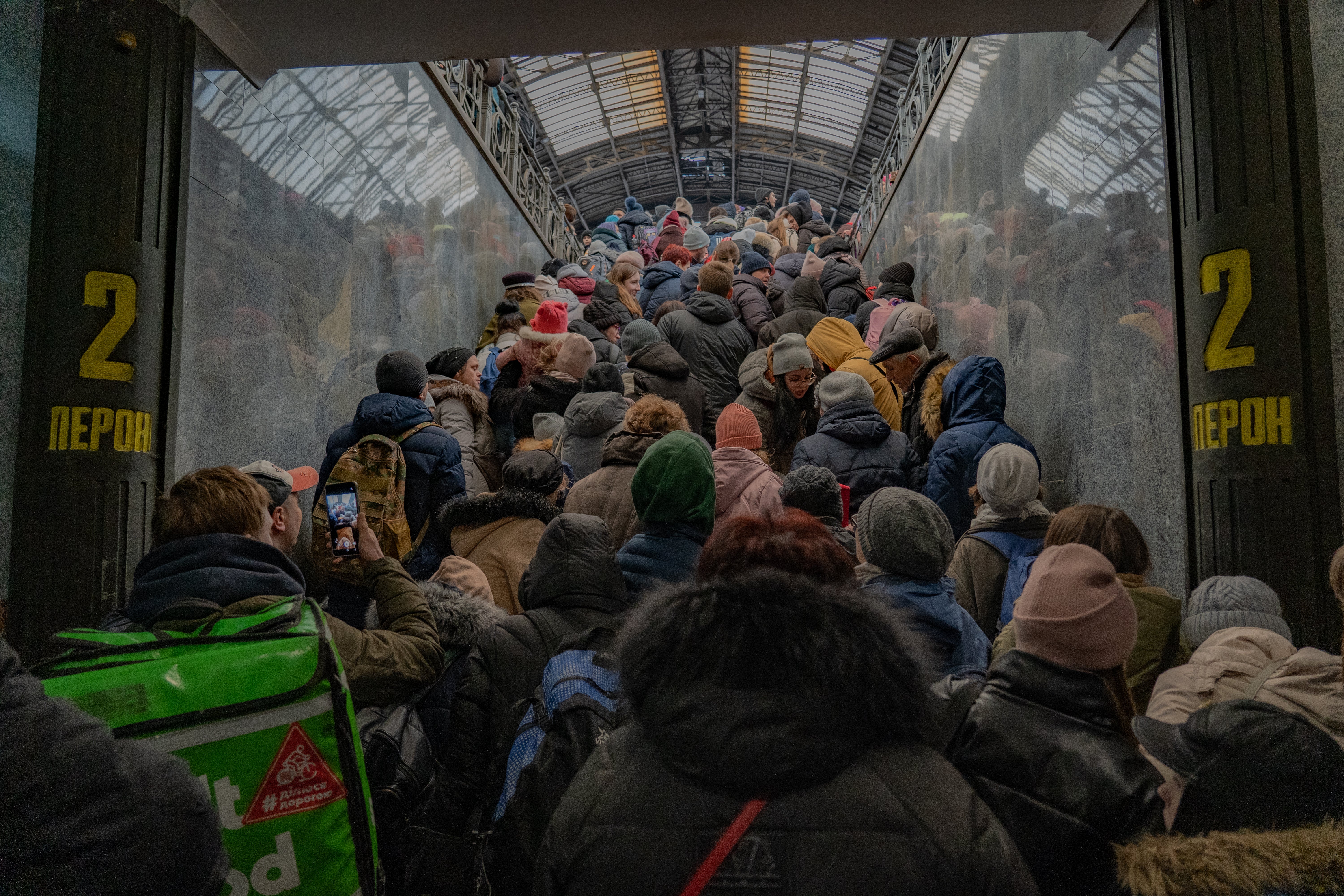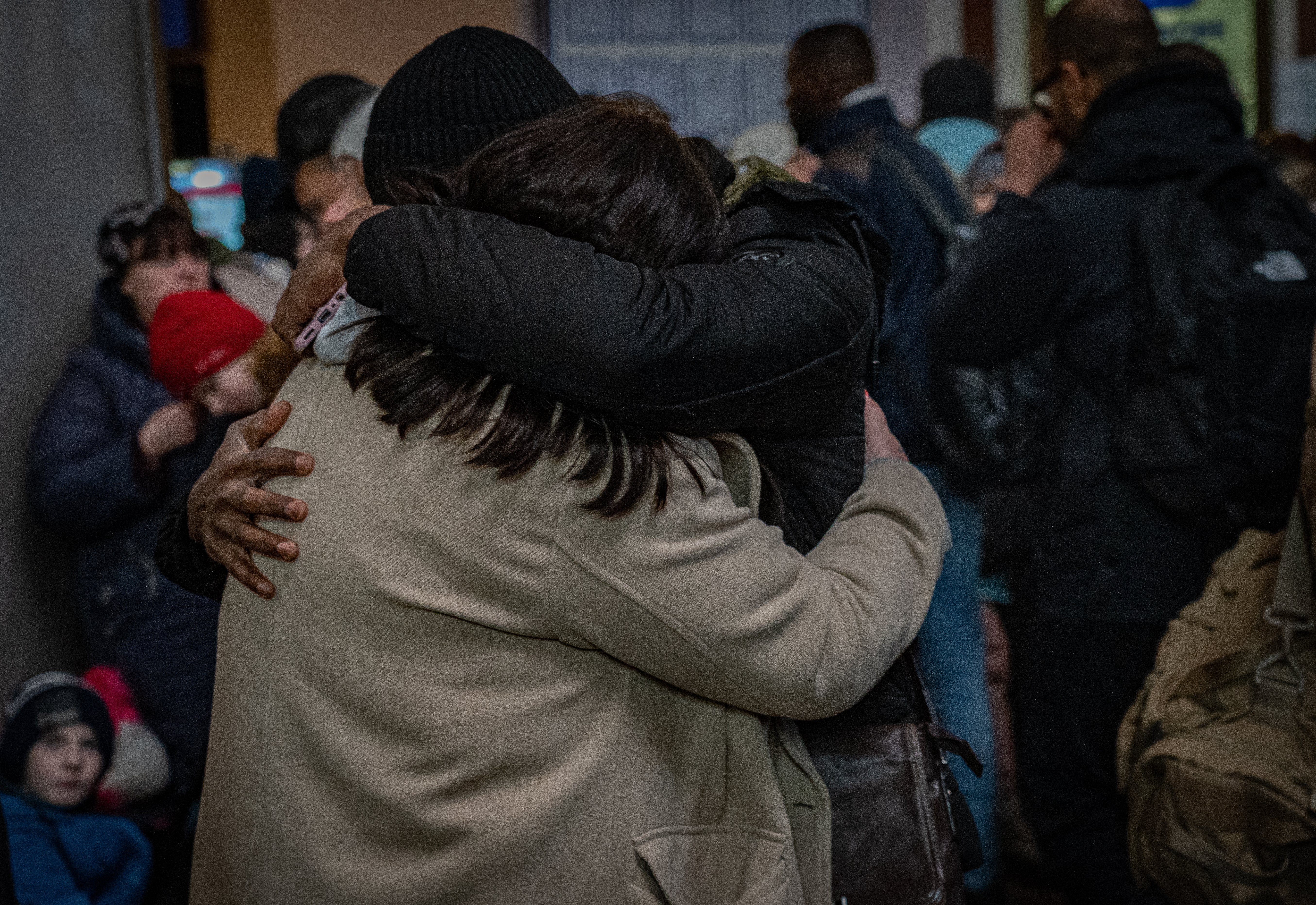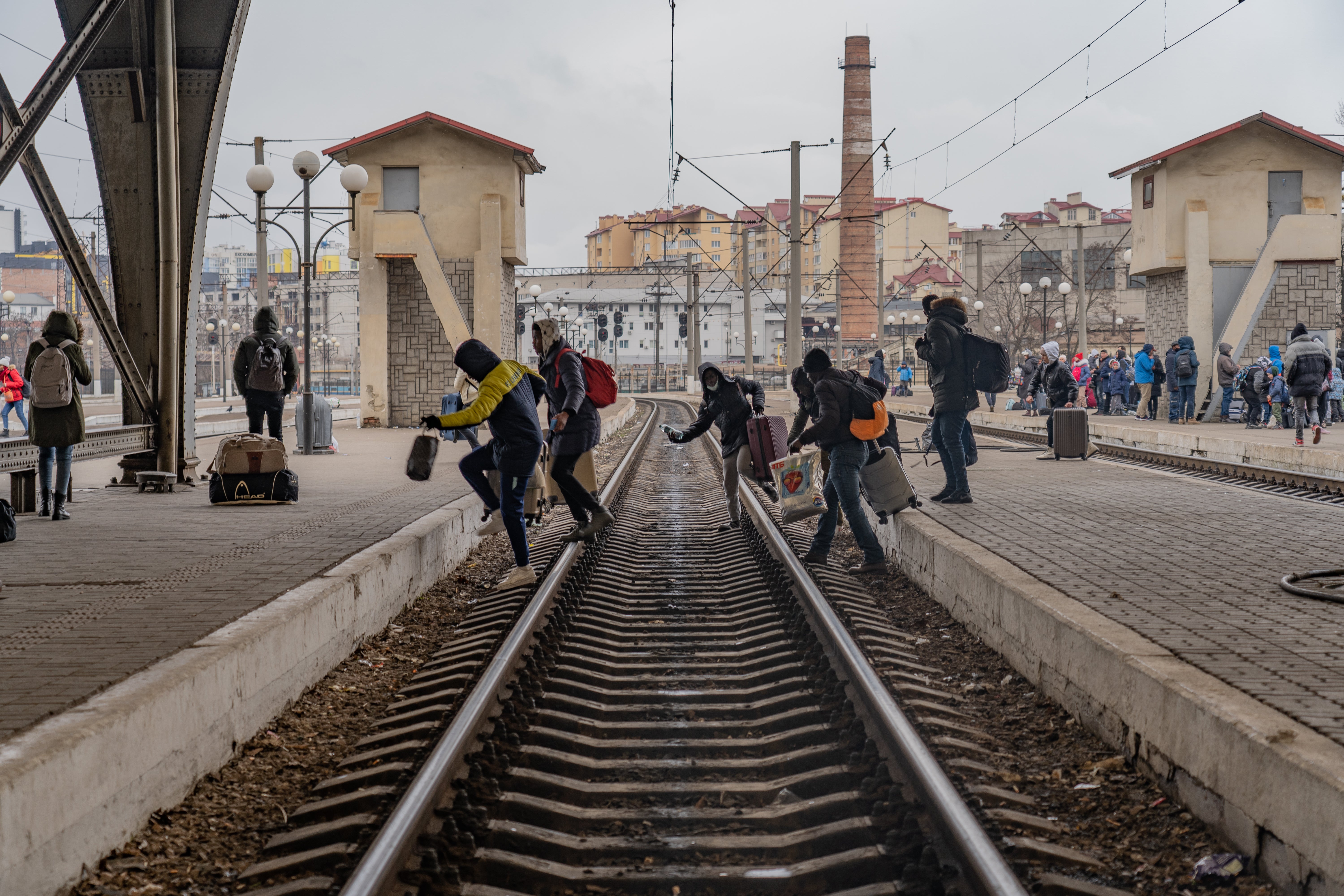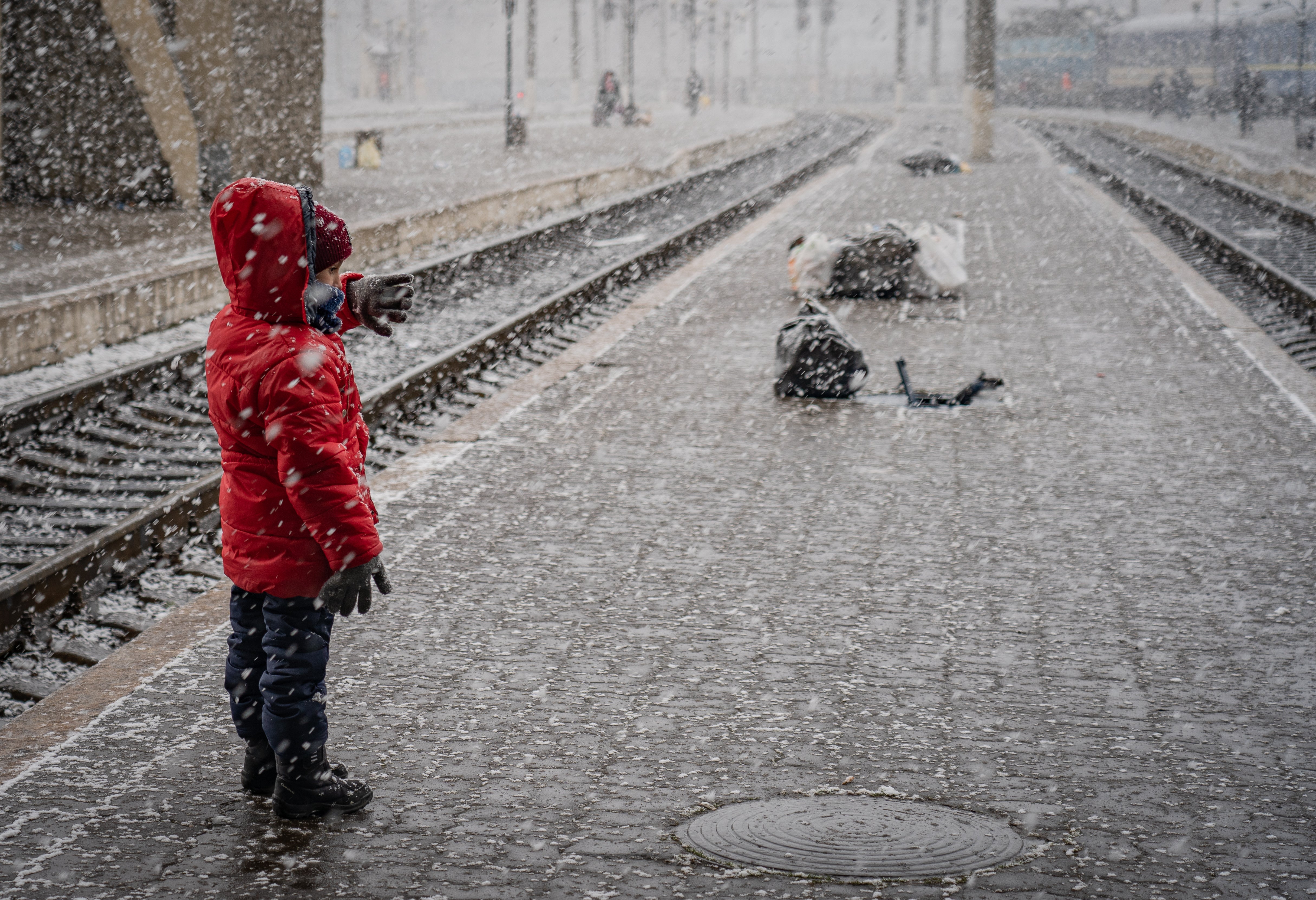‘We don’t have much hope’: Desperation grows at Ukraine border as more than half a million refugees flee war
Refugees Welcome: As snow fell on Sunday, some had to turn around and walk back to the nearest main city to find other ways out, reports Bel Trew from Lviv
They fled Kharkiv in east Ukraine under ferocious bombing, travelled 1000km (621 miles) west, and walked the last 12 hours by foot to Poland in the snow.
But just 10km from safety, the group of Nigerian university students were told they could not board the bus and had to turn around.
Stranded in a warzone, the group of young men and their two pet dogs sat on the floor of Lviv’s crammed train station and planned what to do next.
Around them, Ukrainian families and foreign nationals had set up small encampments in the stations’ waiting rooms, as train after train failed to arrive.
Panicked people crowded the information desk desperate for news on trains to any destination.
Others waited in the snow on the tracks, flocking to every train that arrived to try to get on.
“We were supposed to get on a bus for the last 10km of the journey but they asked all Africans to get off and said only women and children to cross,” says Ben, 27, who was studying petroleum engineering in Kharkiv.
“From our experience and our friends, if you are not Ukrainian it is even harder to get out.”
Behind him, a different group of Nigerian teenagers, who had also fled Kharkiv, said they had been told by friends at the border not to try, as it was near impossible to get through the Polish border if you were not European.

“We heard Polish border it is harder to get in than other countries. Hungary we hope it will be easier,” said Amanda, a 17-year-old medical student. “But we don’t have much hope.”
Chaos at the borders has piled extreme pressure on the Ukrainian and Polish authorities who are struggling to process tens of thousands of terrified men, women and children fleeing Russia’s invasion.
The UN’s refugee agency said on Monday half a million people had fled Ukraine in just a few days, and that this number is expected to grow fast.
The EU’s executive said on Sunday that Europe was facing its biggest humanitarian crisis in years and that Ukrainians internally displaced by the strife could be as many as 7 million.
Janez Lenarcic, European commissioner for humanitarian aid and crisis management, said a further 4 million may flee the country as refugees.
“We are witnessing what could become the largest humanitarian crisis on our European continent in many, many years. The needs are growing as we speak,” he added.
At the border with Poland, where the majority of refugees are fleeing, there are 50km (31 miles) tailbacks of cars waiting to cross, while families ditched their bags and belongings to finish the journey on foot.
Without shelters at the crossings, in the middle of the winter, fleeing civilians have camped in freezing conditions for days.

As the snow began to fall on Sunday, some have had to turn around and walk back to the nearest main city to find other ways out.
The nightmare left some foreign nationals in limbo, prompting a hashtag “AfricansInUkraine”, with people sharing their own stories.
The Independent contacted the Ukrainian foreign ministry for comment but received no reply.
Both Ukrainian and Polish authorities have said that anyone from any nationality is permitted to cross.
But with reports of delays of people from Africa, the Middle East and southeast Asia piling up, countries have begun to express their concern.

Nigerian foreign minister Geoffry Onyeama said he raised the issue that “Ukrainian border guards [were] hindering the exit of Nigerian citizens” with his Ukrainian counterpart, Dmytro Kuleba.
“[Mr Kubela] asserted that Ukrainian border guards have been instructed to allow all foreigners to leave. He promised to investigate and revert quickly,” he added on Twitter.
South Africa’s head of public diplomacy, Clayson Monyela, went as far as to say South African students had been “badly treated” and shared videos with The Independent of the terrible conditions.
A group of Yemeni citizens at the border told The Independent they had been ordered to go to the back of the queue when they arrived. Others from Morocco and Syria said all the Middle Eastern countries had been pushed into groups and told to wait.

Back at the train station, foreign nationals and Ukrainians alike prepared to sleep rough fearing they might miss a train.
Families, many of them now scattered and divided across Ukraine, have waited for a whole day to catch a train to almost any destination.
A seventeen-year-old Ukrainian called Kirill, from the coastal city of Kherson, said he had been separated from his mother and sister for days. They were still along the coast, while his father had got stuck in another part of the country and was called up to fight. He had tagged along with friends rushing to safety.
Ben and his friends meanwhile prepare for a night at the station, as they hoped for a train to Hungary.
“We are exhausted and afraid and want to go home,” he said. “We just hope we can cross a border to do that.”
The Independent’s Refugees Welcome campaign is calling for the UK government to set up a resettlement scheme to give Ukrainians fleeing the invasion sanctuary in Britain.
Join our commenting forum
Join thought-provoking conversations, follow other Independent readers and see their replies
Comments


Bookmark popover
Removed from bookmarks